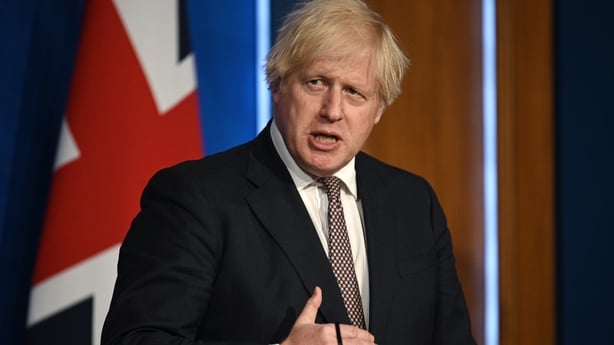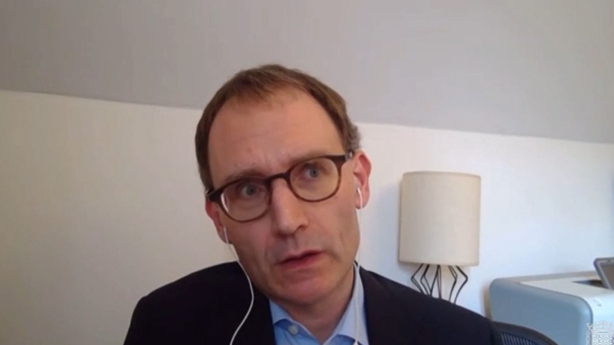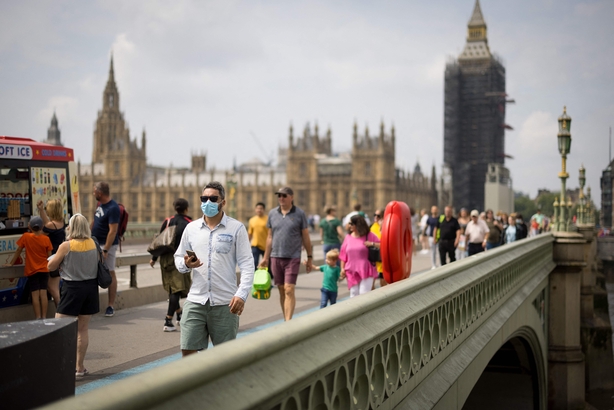The UK has recorded 23,511 Covid-19 cases, the seventh consecutive day with a lower total than the previous day.
But 131 deaths were registered within 28 days of a positive test, the highest figure since March, according to official data.
Responding to the figures, Dr Yvonne Doyle, medical director at Public Health England, said: "Rates are still high and the pandemic is not over yet, today we have recorded the highest number of deaths since March.
"This is in part due to the high number of cases recorded in recent weeks. We know deaths follow when there are a high number of cases and data today highlights we are still in the third wave.
"We can all help. Meeting outside is safer than inside, get two doses of the vaccine as soon as you can and isolate if you are told to by NHS Test & Trace. If you show symptoms, stay home and get a PCR test. Limiting your contacts is the best way to stop the virus spreading."
Earlier, British Prime Minister Boris Johnson said that people should not get carried away with the improving coronavirus infection data, while one of the country's top epidemiologists said the end of the pandemic could be just months away.
Mr Johnson has lifted restrictions in England and is betting he can get one of Europe's largest economies firing again because so many people are now vaccinated, a decision which marks a new chapter in the response to the disease.

But he stressed the pandemic is not over.
"It is very, very important that we don't allow ourselves to run away with premature conclusions about this," Mr Johnson told the media, noting that it would take a while for the lifting of restrictions in England to feed through to the data.
"People have got to remain very cautious and that remains the approach of the government," he said.
Meanwhile, Imperial College epidemiologist Professor Neil Ferguson said the end of the UK's pandemic could be just months away as vaccines have so dramatically reduced the risk of hospitalisation and death.

"We're not completely out of the woods but the equation has fundamentally changed," he told the BBC.
Mr Johnson lifted Covid-19 restrictions in England on 19 July. New daily cases in the current wave peaked two days earlier at 54,674 and have fallen since.

The closure of schools for the summer holidays, the end of the Euro 2020 soccer championships and warmer weather are among factors epidemiologists say might have reduced social mixing indoors and therefore cases, even as England's economy fully reopened.
The UK has one of the highest official death tolls from Covid-19 in the world, with 129,460 deaths, but vaccinations and lockdown measures have greatly slowed the rate of deaths since March.
Prof Ferguson said the impact of vaccines on reducing the risk of hospitalisation from Covid-19 had been huge, adding: "I'm positive that by late September, October time we will be looking back at most of the pandemic."
Case numbers have been falling for longer in Scotland, where the recent peak in cases was on 1 July, than in England, corresponding to an earlier elimination from Euro 2020.
"From a sporting perspective ... Scotland went out far too early, but epidemiologically that probably did us some favours," Scotland's National Clinical Director Jason Leitch said.
Additional reporting PA

